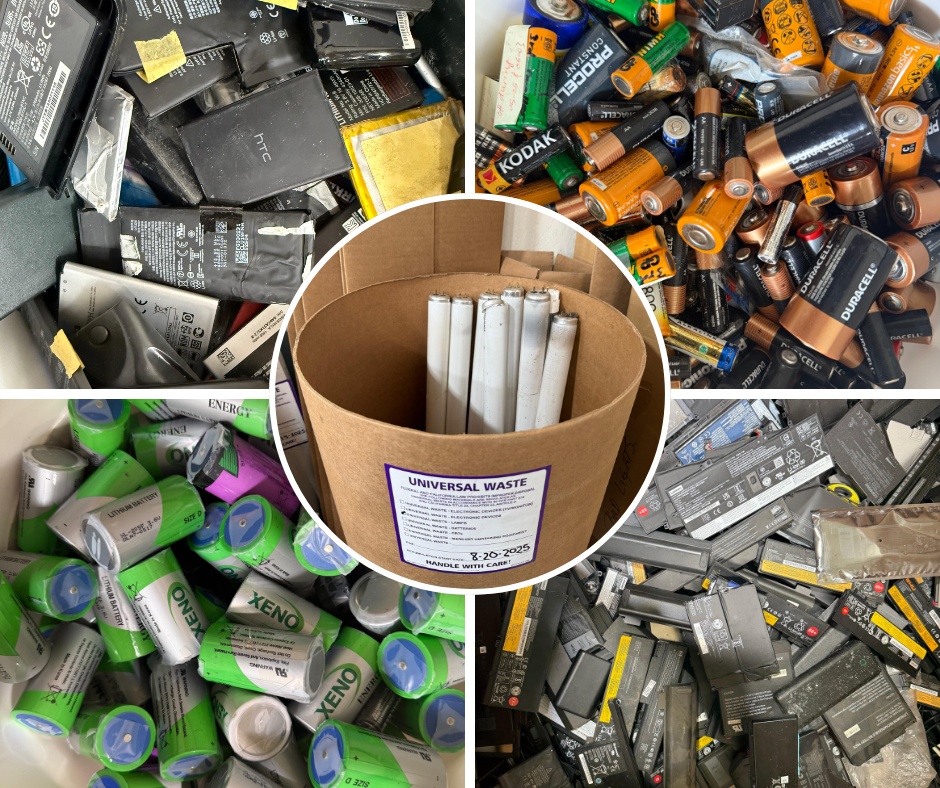Recycling Electronic Waste Efficiently
- Evergreen E-Waste Recycling

- Jun 24, 2019
- 3 min read
Updated: Mar 13, 2022
There was a time when we believed our devices would never outlast their usefulness: their novelty, their cutting edge functionality, and their ability to be updated in a seemingly limitless way seemed to mark them as permanent parts of business infrastructure, and computer recycling was something few of us ever thought about, at home or at work. But now those earlier computers, fax machines, printers, and other electronic devices that your business has replaced with newer versions are hanging around like dinosaurs with no asteroid coming, sagging thrift store shelves, or, worse: they’re clogging landfills throughout the world, with no hope of ever fully breaking down. Even the most responsible businesses struggle to deal with electronic waste efficiently and in an ecologically sound way. It’s an issue that is growing more severe, borne of a need not likely to change with the global economy becoming more and more dependent on computers, and as technology becomes obsolete more quickly than ever. Computer disposal and computer recycling have become a significant issue globally. What Can Businesses Do? While only around twenty percent of household trash ends up recycled, the rules are often different for businesses. A full third of all electronic waste and computer recycling is not coming from residential sources – it’s coming from information technology sources. There’s pressure on businesses to lean green: to mind their larger carbon footprints, and recycle thoroughly and ethically. But it’s overwhelming to manage, and requires working from a map that isn’t fully drawn yet. There are a few guidelines that can both relieve your business’s dependence on hard technology and streamline your computer recycling efforts. Offload Vital Data and Content Hard drives and servers aren’t going to last forever. But you can reduce the strain on them by offloading data and content to remote sources such as the Cloud, online storage services, and portable high-capacity drives that only store information and are therefore less likely to become obsolete. Decreasing your dependence on hard drives and servers is not the only benefit to using remote or portable sources: it also enables you to invest in – and have to replace – fewer things that will have to be recycled someday.
Donate! Devices outlive their usefulness in businesses – where they’re tasked with more, more difficult, and more important work – much more quickly than they do in residential use. Thrift stores, local aid organizations, goods drives, schools, Craigslist advertisements, and lists like Freecycle are a good way to find grateful people who will gladly take your electronic equipment off your hands and put off recycling it for a few years or more. When in Doubt, Ask Many devices and much electronic equipment come with instructions for its disposal provided either by local ordinances, or by the manufacturer itself: They can let you know whether it is something that can be recycled or must be disposed of with special care. Many municipalities will have guidelines for computer recycling and disposing of e-waste and electronic equipment, and will likely have information about it online. It’s not out of the question that a manufacturer will have a use for a returned device or at least its parts. It can’t hurt to ask. Contact a Local and Qualified Electronics Disposal Company Really, this is your best bet. Before you start your old computer on a last, landfill-clogging journey, or condemn it to many weeks on a thrift store shelf, contact professionals. Electronic recycling companies will appropriately dispose of a wide range of electronic waste. Not only will they ethically recycle your electronic equipment, but they will also be sure that it’s done safely and will document the equipment and devices, the clearing and destruction of your data, and the proper recycling of the material. Many also provide e-waste pick ups: coming to you to round up and properly recycle your old electronics. Your business will have electronics to dispose of, and it’s important to your expenses, your reputation, and the ecology that they are disposed of appropriately. Keep the frequency of replacements down by using remote sources, repurpose equipment to other parties when possible, find out the requirements for a particular device’s disposal, and use a qualified and professional electronics disposal company offering computer disposal for businesses.






Comments